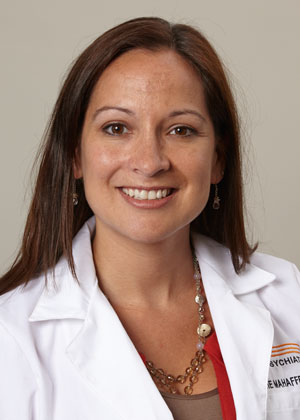It saddens me that opioid addiction has culminated into a national emergency, but hopefully will encourage a societal change in attitude. To gain control of this epidemic, it must be recognized that addiction is not a failure of willpower and that addicts are not sub-human because of a disease they battle.

Addicts are our family members, friends, neighbors and co-workers. Addicts are all around us day after day, and we accept them fully into our lives until their disease is discovered. The American Medical Association has defined addiction as a disease for more than 30 years, yet attitudes and the justice system have been slow to grasp this point.
Attitudes toward addiction and depression are comparable. It is almost impossible to grasp the overwhelming sense of despair and darkness. The difference, however, is that we treat depression with evidence-based medicine. Unfortunately, our society’s futile attempt to control addiction is through the criminal justice system.
The many contributing factors to this epidemic have been discussed at length. Doctor education and guidelines are necessary for both opiate prescribing practices and addiction, but let us not forget about the 2 ½ million Americans who are already addicted. It is too late for these individuals to tackle the problem from the prescribing end. They need treatment without shaming. Many people are prevented from seeking treatment, not just those with few means. Help is elusive and seeking it often destroys relationships, careers, financial stability, reputation and self-worth.
Most people do not choose to be addicted. Millions of people are prescribed pain medication for legitimate medical purposes and many are able to stop when the medication is no longer needed. However, factors such as genetics and environment play an important role in vulnerability to addiction (NIDA, 2014). Four out of five heroin users started with prescription pain pills (Muhuri, Gfroerer, & Davies, 2013).
An addicted brain is in a diseased state. It is hard to empathize with an addict’s inability to simply not use the drug. However, research is clear on the changes that occur in the brain during addiction. The brain sees the drug as necessary to sustain life and causes an inability to rationally assess needs and consequences. Basically, the brain has been hijacked and tells the person the drug is priority number one over all other survival instincts (Fowler, Volkow, Kassed, & Chang, 2007). Studies on addicted and starving rats have demonstrated that they choose more drug over food and water (Gardner & David, 1999). We expect addicts to think the way we do, but we neither know nor understand what it is like to think with a damaged brain. We do not ask someone who is psychotic to stop hallucinating. Once that point is reached, structured treatment support is the only answer, and it is unrealistic to ask someone to “snap out of it” and make better choices.
Far too frequently help is not immediately available when someone is ready. It is unrealistic to send an addict home with a number to call or to be placed on a wait list and expect them to stay drug-free while suffering through increasingly severe withdrawal symptoms.
With hundreds of thousands of people expected to die of overdoses over the next 10 years, let us put aside the stigma and our moralistic objections to proven evidence-based interventions. According to the World Health Organization (2017), methadone and buprenorphine are essential medications for treatment of opioid addiction. They reduce mortality by more than half. These medications restore balance in the circuits of the brain disrupted by addiction, thus stopping the cycle and allowing the person to feel normal again.
Family, friends, neighbors and co-workers are struggling and need your support. Help them maintain a sense of dignity and remind them they are not alone. If you suspect someone is addicted, take the time to let them know you care and will assist them in finding help.
As long as there is life, there is hope. The increasing number of families touched by this disease should allow us to grow as a society and accept that addiction is the enemy — not the afflicted.
For more information about the full-spectrum diagnostic and treatment options offered by Erlanger’s behavioral health team, please visit UT Erlanger Behavioral Health.
This opinion article was originally published on timesfreepress.com.







